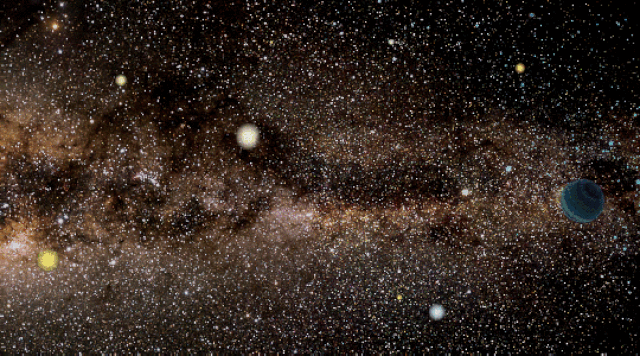An Earth-size Planet is Careening Untethered Through the Galaxy, Scientists Find
Nobody has ever seen one here — until now.
By Brandon Specktor | Live Science Senior WriterOCTOBER 29, 2020 | Earth orbits the sun like a ship sailing in circles around its anchor. But what if someone — or something — cut that ship loose? Unbound from any star or solar system, what would become of a tiny world flying helplessly and heedlessly through interstellar space? What happens when a planet goes rogue?
A rogue planet bends the light of the star behind it, relative to Earth.
(Image: © Jan Skowron / Astronomical Observatory, University of Warsaw)Scientists suspect that billions of free-floating or “rogue” planets may exist in the Milky Way, but so far only a handful of candidates have turned up among the 4,000-or-so worlds discovered beyond our solar system. Most of these potential rogue planets appear to be enormous, measuring anywhere from two to 40 times the mass of Jupiter (one Jupiter is equivalent to about 300 Earths). But now, astronomers believe they’ve detected a rogue world like no other: a tiny, free-floating planet, roughly the mass of Earth, gallivanting through the gut of the Milky Way.
This discovery, reported today (Oct. 29) in the Astrophysical Journal Letters, may mark the smallest rogue planet ever detected, and it could help prove a long-standing cosmic theory. According to the study authors, this little world could be the first real evidence that free-floating, Earth-sized planets may be some of the most common objects in the galaxy.
